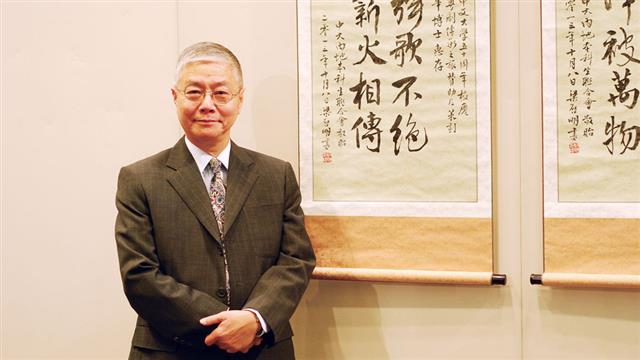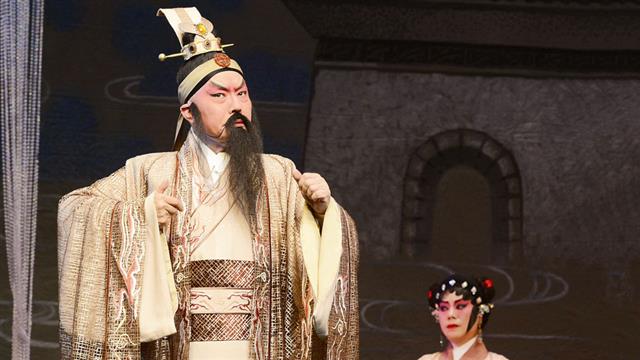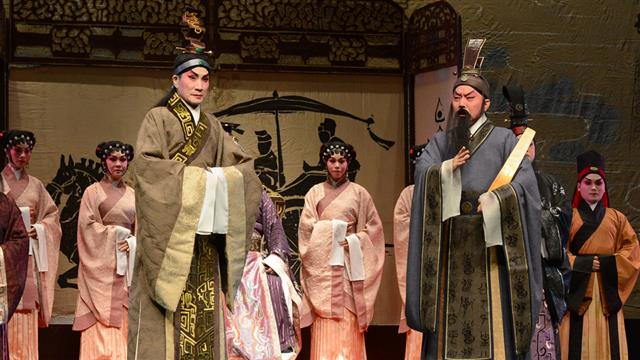- Member of the Hong Kong Arts Development Council and chairman of its Xiqu Group
- Vice-President of the Chinese Artists Association of Hong Kong
- A film actor and Cantonese opera artist who has performed for 60 years. He plays Confucius in The Peregrinations of Confucius.
Confucius is a role that may intimidate many performers because Confucius is a universally revered and well-known figure about whose private life little is known. How do you interpret the role?
This semi-deified 'Paragon for All Generations' and grand master of Confucianism was a flesh-and-blood human being who had to eat and sleep like everybody else, so we had to 'humanize' him first. Confucius was not a fictional character. But we don't have much information about his personal life. So, we can only piece together his personality from descriptions in the works of his students. People usually think that he was aloof and rigid. But many of his words are quite plain and unassuming. However, it is inadvisable to completely overturn traditional perceptions of this figure. We still have to base our interpretation on long-held and popular beliefs about him. By and large, we have to maintain the image of Confucius as a sage, while preserving his humanity.
Could you give us some tips for appreciating this play?
Except for a crisis in Scene 4 'Besieged in Chen' and intense debates with Nan Zi and the Duke Ling of Wei in Scene 3, there is not much dramatic conflict in the plot. But neither are we going to resort to exaggeration for the sake of creating conflict. Many lines in the libretto were taken from the Analects. If you haven't read the Analects, you may not fully understand the libretto. The play is full of messages. The audience can appreciate it from the mentality of Confucius. He fell from grace not because that he was lacking in ability, but because his idea of great unity was not accepted by rulers due to vested interest.
How can the younger audience identify with those traditional plays?
Although Chinese operas are mainly about scholars and ladies, or people of the court and officialdom, they are not cut off from modernity. They're simply modern stories staged by performers in ancient costumes. One can draw parallels from Fifteen Strings of Copper Coins with modern bureaucracy. Legend of the White Snake is more than a love story—the leading male character Xu Xian is no different from a weak-willed crowd follower. If we can give our characters sharp personalities, convey messages effectively and strike a chord in the audience, we succeed.
How can a university help to promote traditional operas?
First, it can teach students to understand and appreciate this art form. Second, it can do research to trace the evolution of Cantonese opera, such as the development of its different vocal styles. Ideally, scholars' research skills and foundation in theory can complement performers' hands-on experience. The older generation of Chinese opera performers were trained through apprenticeship. They were not allowed to ask questions. So, they're not good at analysis or research. But by showing the right direction with their experience, they can help to prevent research from going awry.





